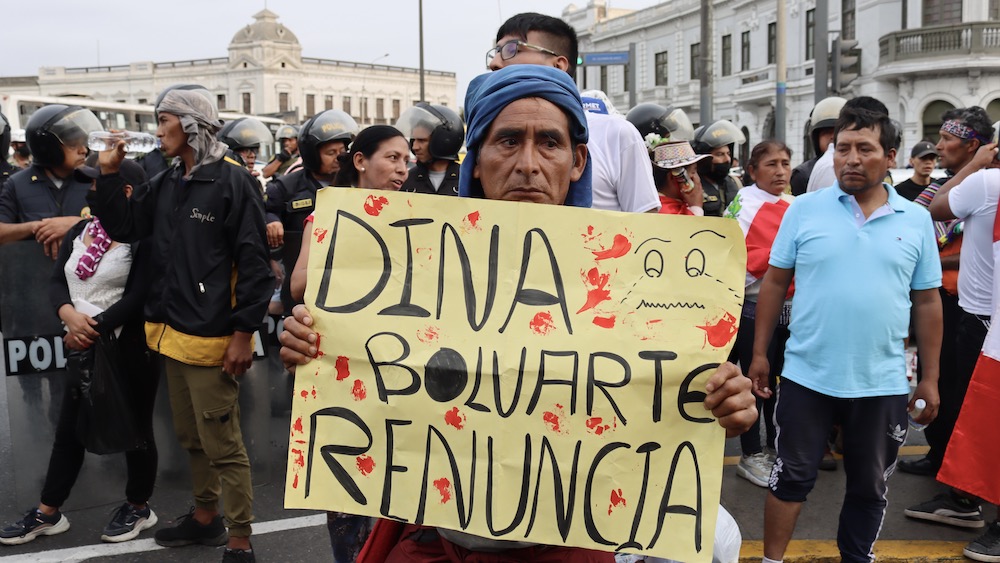On July 1 and 2, various social organizations and trade unions from the 25 regions of Peru held the First National Meeting of Regions and Organized People in the capital Lima to unite forces against the de facto government led by Dina Boluarte. During the two-day meeting, the Indigenous, peasant, social and union leaders agreed to organize 10 days of continuous social protests to demand Boluarte’s immediate resignation, closure of right-wing dominated Congress, new general elections, a Constituent Assembly to draft a new constitution, freedom of those arrested during protests and justice for those killed by the Army and the Police in the mobilizations.
Jorge Pizarro, representative of the National Assembly of the Peoples (ANP), explained that the new round of protests would be called the “National Day of Permanent Popular Mobilization” and that the capital Lima would be its epicenter. Pizarro informed that the protests would begin on July 19, the day for which ‘Toma de Lima’ or ‘Takeover of Lima’ march had been called, and conclude on July 28, on the Peruvian Independence Day.
Thousands of people from across the country are expected to arrive in Lima in the coming days. Pizarro reported that the leadership of the protest was considering the possibility of requesting international observers, in order to avoid deaths and injuries such as those registered during the demonstrations between December 2022 and February 2023. According to reports from local media and human rights organizations, an estimated 70 people were killed in violent repression by state security forces in the three months of social protests.
In June, Boluarte harshly criticized the announcement of new social protests against her government. She also ruled out the possibility of stepping down and organizing early elections. According to reports, the government has already ordered the deployment of more than 8,000 police officers at various points in the capital for July 19.
Boluarte, who took office after former left-wing President Pedro Castillo was removed in a legislative coup and subsequently arrested, has been highly unpopular since the day she assumed power. While she was elected on a progressive ticket, following the coup she entered into a political alliance with the country’s right-wing forces to govern.
Santos Saavedra Vásquez, the president of the Single National Union of Urban and Peasant Patrols Movement (Central Única Nacional de Rondas Campesinas – CUNARC), told La Republica that different patrol bases from the northern, central and southern regions were ready to travel to the capital.
“The president must resign before the national day, it is the most suitable thing to do in this political and social crisis. However, President Dina Boluarte and the Congress do not want to leave power despite the rejection of the Peruvians,” emphasized Saavedra Vásquez.
According to a new survey conducted by the Institute of Peruvian Studies (IEP), the disapproval rating of Boluarte has risen from 71% in January to 80% in June, while that of the Congress has increased from 88% to 91%. With respect to the issue of a new constitution, the poll showed that 47% were in favor of making some changes to the current Constitution, which was written and imposed in 1993 under the far-right dictatorship of Alberto Fujimori (July 1990–November 2000). Meanwhile, 34% said that the dictatorship-era constitution should be replaced completely.





